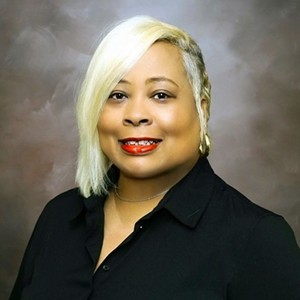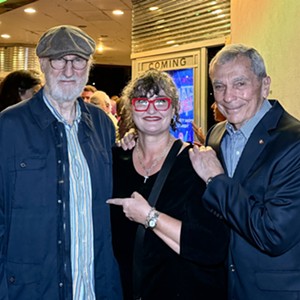Because that’s how David Starnes lived his life. Private. Singular. Mysterious. He didn’t advertise what or who he knew. He wasn’t one to tell stories out of school. He was too smart for that. He knew that things change but friendships are forever. He knew that words carry weight, that once uttered, are tucked away and remembered.
He could see the big picture. Yet he knew the value of the personal, the details. If you didn’t see him for months or years, if you weren’t privy to the occasional “Starnes sighting,” as we were wont to say, so rare was he in town the last few years after he started teaching at Georgia Southern, so lucky did we feel if we caught a glimpse of that loping, loopy, slightly offbeat, low-to-the-ground walk, those dancing eyebrows and ironic eyes, the easy, well-timed pratfall, then surely you could count on a birthday card - even, I understand, an anniversary card. Every year. (How many people send anniversary cards?).
This, no matter how many times your address, your city, your zip code changed, no matter how many times you forgot to send him a card on his birthday.
When I heard about his death in a car accident some two weeks after my birthday -- which falls one day before his -- I knew I would return home from an extended out-of-town trip to find a birthday card, and I did. It was stamped with Judy Garland, penned in his familiar script, addressed on the inside, as always, to Jane F., signed as usual, Love, David S.
“Where are you,” he said, “and what did you learn today and how come you don’t write?”
This year’s Christmas card, filled with words circling around themselves, seemed to imbue a greater than usual sense of hope. It was a Xeroxed copy of the classic Annie Leibovitz spooning-photo of John and Yoko and the words, never more appropriate, “Give peace a chance.”
This past week of mourning and celebrating, I heard talk of a lot of David details. On the day of his funeral, one special friend of his allowed, quietly, “Everything I’m wearing David gave to me.” Bracelet, pendant, earrings, skirt, blouse. And love.
As it turns out, the man we always regarded as shy and private was anything but a recluse. He was as apt to show up in my garden for a chat under the shade of the spreading sycamore tree as he was to appear at another friend’s front door asking, “Got any cookies?” There were other visits in the garden near a former wooden kayak factory, like the time when we each reached behind the front seat of our car, found our baseball mitts and played catch.
But because David Starnes, who just turned 64, was complicated and always changing, always growing, I never knew the effect nor imagined the consequences he could have on young, first-time writers or not-so-young first-time writers.
As Cormac McCarthy writes in The Road, Starnes was one of the good people, carrying the flame of hope and life in a world that sometimes appears filled with despair and despondency.
I met him during one of his many transitional periods, when in between writing poems and contemplating a return to school he was doing carpentry and painting houses. I met him when he and friend Charlie Reeves gave a client of theirs (a client with a good sense of humor) a box of calling cards advertising their services. Their motto? “We’re slow but we’re expensive.”
But what I heard from students at the funeral, as pitch-perfect a celebration as any I’ve been to, signaled a different David Starnes, one who could inspire and influence, applaud and appreciate. A mentor.
Because he did not own property, Starnes had time to canoe, to kayak, to write poetry. Because he did not have kids he could consider renting a Santa Claus suit, which he did, pop up at friends’ homes and, unbidden, unexpected, unasked, do his thing.
‘”He is the freest man I know,” said his father.
Because he was not married he could spend more time with more friends, which he was doing the last night of his life.
“This is as good as it gets,” someone who was at that dinner recalled him saying.
During the funeral Kristina Beaty sang a haunting and prophetic version of irving Berlin’s song, “What’ll I Do?” and it was lovely. But I sort of wish we could have heard The Beatles’ “When I’m Sixty-Four,” which is what I find myself humming today.
I know I’m not the only one singing it to you, Starnes.




















